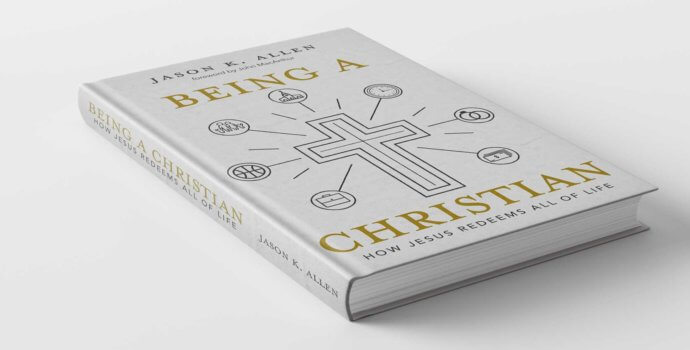The Gospel, Marriage, and Family
What makes a good Christian marriage? At its core, it is two good Christian people, joined together in holy matrimony. Yet, a good Christian marriage is so much more than this. Two good Christian people are essential for a strong, Christian marriage—but that is not enough.
By tracing marriage all the way back to the beginning, to Adam and Eve in the garden of Eden, we can find God’s divine plan for marriage revealed in His creation as He worked to bind Adam and Eve to one another.
- Completion: God saw man’s loneliness, knew it was not good, and created “a helper corresponding to him.” The Bible teaches us that, on occasion, God sets apart individuals for a lifetime of singleness, but that is the exception, not the norm. For most of us, we experience relational emptiness only satisfied through the spouse God gives us.
- Compassion: Created from himself, Adam saw in Eve “bone of my bone, flesh of my flesh.” In marriage, the two become one, because the two once were one. Thus, matrimony is to be marked by a sweet communion, a relationship of love, care, and compassion.
- Commitment: So attracted are we to our spouse that, in the covenant of marriage, “a man leaves his father and mother and bonds with his wife.” This commitment is a permanent one, wherein we say “no” to all others for all time when we say “yes” to the chosen mate God has given us.
- Closeness: Within the covenant of marriage, the man and woman know a closeness, an exhilaration of love that can never be known outside of marriage. As they “become one flesh,” they can be “naked, yet [feel] no shame” because they are abiding in God’s divine plan, a union sanctioned by him.
This completion, compassion, commitment, and closeness that God ordained for marriage unions sets the stage for godly and holy marriages.
But what happens when conflict arises in our marriages?
Ephesians 5:22-33 outlines the key themes that every husband and wife should embrace on a daily basis to live out the love of God to their spouse and continue to grow their marriage to a healthier, godlier state.
- Submission: The wife is called to lovingly submit to her husband, as he submits to Christ. The pattern is to be one of gracious headship, of the husband leading his wife and family as he follows Christ. Deviating from this pattern, either through the wife’s rebellion or the husband’s passivity or heavy-handedness, hinders the marriage.
- Sacrifice: The husband is to give himself sacrificially for his wife. The model for such sacrifice is the greatest sacrificial act of all: Jesus’ death for the church. Such sacrificial love makes the wife’s gracious submission to her husband not only possible, but desirable.
- Sanctification: Note also, the husband is called to further his wife’s own sanctification. The marital union fosters Christian growth for both the husband and the wife. Within marriage, we learn to die to ourselves and to put the needs of others first. Additionally, the marital union provides a healthy, holy context for our sexuality to be expressed, enjoyed, and celebrated—a sanctifying step in and of itself. As we grow in Christ, we grow in our love for one another, and vice versa.
- Servant-leadership: Lastly, men, as we lead our wives, we do so with the heart of a servant-leader. There is no room for bravado or lording our spousal role. Rather, we are to be the type of servant-leader every woman longs to follow, putting our wife’s interests, and, most of all, Christ’s interests, first.
Remember, God has a divine plan and pattern for your marriage, and a divine picture he wants to convey. This is all for your good, for the health and prosperity of your family, and for his glory. Like every other area of your life, you cannot improve upon God’s best. It is perfect—beyond improvement. Do not crash into the wave; ride it.
*This is an excerpt from Dr. Jason Allen’s new book Being a Christian. You can purchase or find more information on the book at LifeWay Christian Resources*
topicsBeing a Christian

Comments are closed.